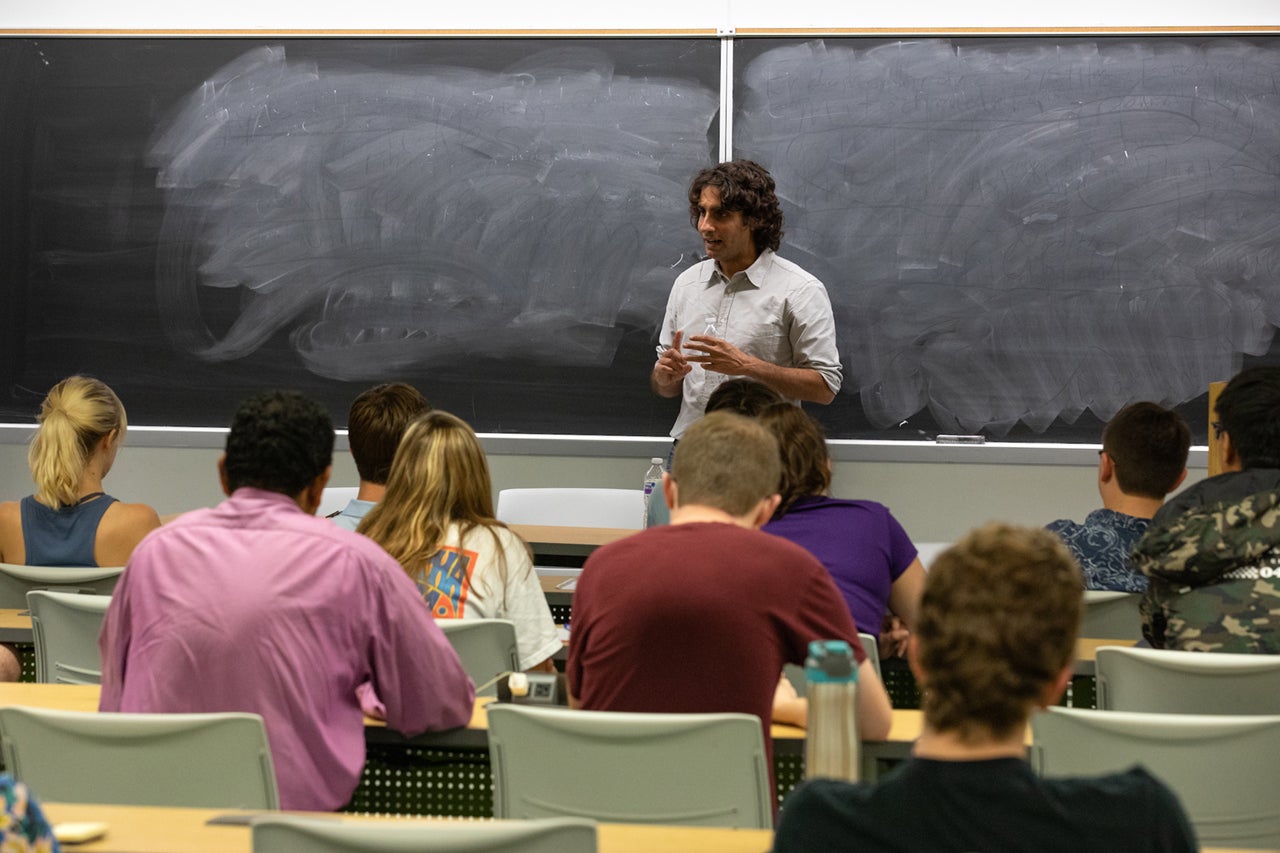The College of Charleston’s Career Center takes a proactive stance in helping students succeed beyond their collegiate years. One such effort is a workshop series called Cougar Confidential, which features CofC alumni highlighting their professional journeys. At a recent session, Semmy Purewal ’02 spoke with computer science, data science and computing in the arts students, counseling them on how to excel in interviews with tech companies.
Purewal works as a software engineer at Facebook. He previously worked for Netflix. And before that he spent several years teaching computer science at a number of universities (including the College) – so he’s well versed in what it takes to jump from academia to the tech world.
“Before moving to California to begin working in the tech sector, I essentially circumnavigated the Southeast teaching computer science at four different institutions,” Purewal told students. “Even though I had a Ph.D. in this field, I didn’t have all the practical programming skills that I needed, so I taught myself web development.”
RELATED: Learn more about how Semmy Purewal landed at Facebook.
Purewal taught himself Javascript and Node.js, while working on freelance projects using those technologies. Eventually, he incorporated Node.js into the classes he was teaching and began blogging about it. His blog caught the attention of Netflix.
“I got a contract to write a book explaining Node.js and it was about then that I received a message from Netflix. I thought someone was trolling me,” he said with a laugh. “So, I didn’t respond. But the company persisted. They wanted someone with Javascript experience and who knew Node.js. Before I knew it, I was on a plane, headed to California to interview.”
Part of Purewal’s message to students was that few career paths are linear. There are always unexpected twists and turns. In fact, throughout his time in Silicon Valley, Purewal has continued to interview with various large tech companies in that region.
“I’ve interviewed at a lot of big tech companies and I’ve failed my share of those interviews, but that will occasionally happen,” he said. “It’s really important that you understand you have to be able to pick yourself up, dust yourself off and just keep going after something like that happens.”
Purewal also gave a presentation entitled “Crushing Your Coding Interview,” which provided specific advice for how to succeed with entry-level interviews at tech companies. As he presented the information, some 30 students listened with rapt attention. Nearly all of them asked questions for which Purewal offered ready answers. Then, he led them through some of the scenarios they can expect to encounter in such an interview.
“The hardest part of an interview,” he explained, “is when you have to begin coding and talking out loud at the same time to explain your thought processes. The interviewer will want to find out how you go about tackling hard problems, and you have to be able to express yourself clearly.”
Purewal also told the students that working in tech can be tremendously rewarding. “At Netflix, I could write some code one day and have it used by millions of people within a few days. That’s powerful, and it can change the way you look at software development.”
For him, it has. Purewal said the thing he’s most passionate about now is working to help his industry become more diverse.
“There’s room in this field for all kinds of people,” he offered. “And anyone with the right skills can thrive here.”
Purewal’s closing advice to students was simple: Ask about the culture of the companies you’re interested in working for.
“I’m very happy at Facebook, in part because it’s a super supportive atmosphere; it’s like being part of an enormous family,” he said. “But there are more jobs out there in software than there are people to fill them, so be selective. Find a company that matches your values. You’re going to be spending a good deal of your time in that environment. You want to make the most of that commitment, but you also want to enjoy it.”







